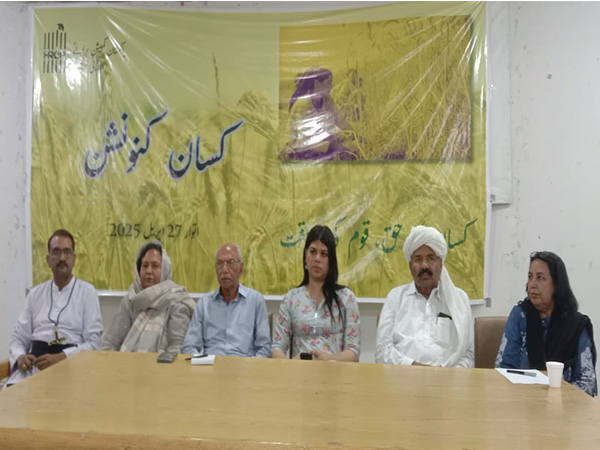
Pakistan: HRCP calls for action on land rights, women's inclusion in agriculture
Apr 28, 2025
Multan [Pakistan], April 28 : The Human Rights Commission of Pakistan (HRCP) hosted the Kissan Convention in Multan on Sunday. Agricultural workers, farmers, and activists gathered to address pressing issues related to climate change, land rights, corporate farming, and the exclusion of women and minority groups from agricultural policy discussions.
As outlined in a press release from HRCP, the convention painted a bleak picture of the ongoing crisis in Pakistan's agricultural heartland. Climate change is severely disrupting crop cycles and threatening the livelihoods of many farmers. Speakers emphasised the negative impact of unpredictable weather patterns and drying canals, warning that these factors are pushing the agricultural sector to the edge of collapse.
HRCP Council member Lubna Nadeem highlighted the particular challenges faced by women agricultural workers in Punjab. Despite being essential to sowing, cultivating, and harvesting, they are largely invisible under the province's labour laws and excluded from policy decisions affecting them.
Land rights were a key point of discussion at the event, with speakers expressing outrage over the alleged dispossession of indigenous farmers in Cholistan. Cholistan Bachao Tehreek President, Allah Rakha, condemned the encroachment of outsiders on ancestral lands, emphasising that, despite previous HRCP interventions, including a fact-finding mission led by former chairperson Hina Jilani, the rights of these farmers remain threatened.
As per the press release, the other significant issue raised during the convention was the rise of corporate farming, where big corporations are acquiring ancestral lands, pushing the local farmers away from their property, and eroding ecosystems. The convention also focused on marginalised communities being kept out of agricultural policymaking.
The HRCP ended the convention by issuing a charter of demands, demanding the implementation of minimum wage laws for farm workers, official recognition of women and minorities as farm workers, and the redistribution of state land to landless farmers. The convention demanded more equitable policies and legal safeguards for farmers.


























